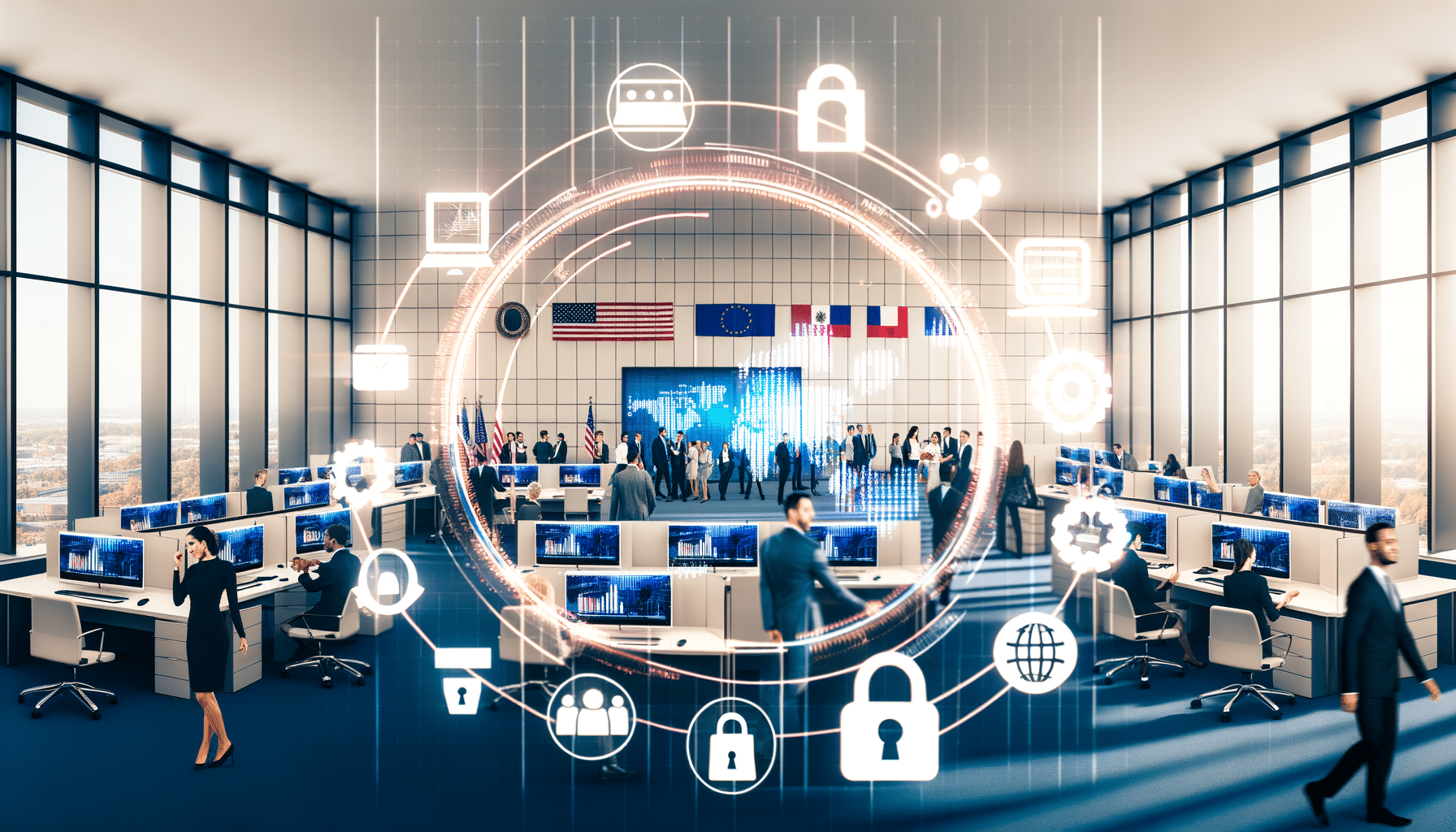- Cybersecurity Strategies
- June 16, 2024
Mitigating Cybersecurity Risks in Government Record Management

Introduction
When I first delved into the realm of record management, I witnessed the challenges faced by public sectors in safeguarding sensitive information. Cybersecurity threats loom large over government records, posing significant risks to data integrity, confidentiality, and availability. Addressing these threats requires a nuanced understanding and strategic approach. In this article, I will explore practical ways to mitigate cybersecurity risks in government record management, providing insights that can aid departments globally.
The Growing Threat Landscape
As digital transformation becomes more entrenched in governmental operations, it’s vital for us to recognize the expanding threat landscape. Cyber adversaries are continuously evolving their methods, targeting everything from personal data to sensitive government information. So, how do we counter these threats?
Understanding Vulnerabilities
First, we must understand the vulnerabilities specific to government records. Systems that have outdated software or lack robust defenses are like open invitations to cyber attackers. Furthermore, improper access controls and insufficient employee training can inadvertently lead to data breaches.
Implementing Strong Cybersecurity Measures
To thwart potential threats, deploying a multi-faceted cybersecurity strategy is non-negotiable. Here are some actionable measures:
- Regular Security Audits: Conduct frequent security assessments to identify vulnerabilities before they are exploited.
- Advanced Encryption Techniques: Encrypt sensitive data both at rest and in transit to ensure it remains inaccessible to unauthorized users.
- Integration of AI and Machine Learning: Leverage advanced technologies to predict potential threats and automate responses, reducing the likelihood of successful attacks.
RecordsKeeper.AI plays a pivotal role here by integrating cutting-edge technologies like Blockchain to bolster data integrity and AI to automate threat detection.
The Role of Blockchain in Securing Records
Blockchain, often associated with cryptocurrencies, offers unparalleled security advantages that are equally applicable to record management. I have always advocated for Blockchain integration due to its ability to create a tamper-proof environment for data storage. Here’s why it’s critical for government records:
- Immutability: Once a record is recorded on the blockchain, it cannot be altered, ensuring its authenticity.
- Transparency: Every stakeholder can access records in a decentralized manner, eliminating a single point of failure.
- Traceability: Each transaction is time-stamped and linked to the previous one, providing a clear audit trail.
Ensuring Compliance and Best Practices
Meeting regulatory standards is another crucial aspect of securing government records. Non-compliance can lead to significant penalties and erode public trust. Staying aligned with frameworks such as GDPR, HIPAA, and other relevant regulations is imperative.
Automating Compliance Management
Automation through platforms like RecordsKeeper.AI can ensure government entities adhere to industry standards efficiently. By automating compliance workflows, we can significantly reduce human error and ensure seamless operations.
Training and Awareness
No cybersecurity strategy is complete without emphasizing the human element. It is essential to cultivate a culture of security awareness among all personnel involved in record management. This includes:
- Regular Training Sessions: Educate staff on cybersecurity best practices and simulate scenarios to improve response time to potential threats.
- Clear Access Policies: Implement robust user access protocols to ensure only authorized personnel handle sensitive data.
- Incident Response Planning: Establish a clear protocol for responding to security breaches to minimize impact and facilitate swift recovery.
Conclusion and Call to Action
In mitigating cybersecurity risks in government record management, a proactive and well-rounded approach is indispensable. By understanding the specific challenges and implementing advanced technologies, we can protect critical government data effectively. I urge all legal, finance, and compliance heads to explore platforms like RecordsKeeper.AI, which we designed to transform record management and enhance security. Let us fortify our government institutions against cyber threats, leveraging technology as a strategic advantage. Follow my journey and insights at RecordsKeeper.AI as we continue to push the boundaries in safeguarding information.
Toshendra Sharma is the visionary founder and CEO of RecordsKeeper.AI, spearheading the fusion of AI and blockchain to redefine enterprise record management. With a groundbreaking approach to solving complex business challenges, Toshendra combines deep expertise in blockchain and artificial intelligence with an acute understanding of enterprise compliance and security needs.
Related Posts

How to Prevent Data Breaches in Legal Firms
Understand the measures legal firms can take to prevent data breaches and secure client information.
- September 7, 2024

Securing Legal Records: Best Practices for Law Firms
Learn the top security measures for protecting sensitive legal records.
- August 11, 2024
Archives
- January 2025
- December 2024
- November 2024
- October 2024
- September 2024
- August 2024
- July 2024
- June 2024
- May 2024
- April 2024
- March 2024
- February 2024
- January 2024
- December 2023
- November 2023
- October 2023
- September 2023
- August 2023
- July 2023
- June 2023
- May 2023
- April 2023
- March 2023
- February 2023
- January 2023
- December 2022
- November 2022
- October 2022
- September 2022
Want to get more content like this?
Signup to directly get this type of content to your inbox!!
Latest Post
Document Control for Equipment Maintenance
- January 20, 2025
Managing Records for Multiple Clients
- January 19, 2025
Handling Conference Documentation
- January 18, 2025
Setting Up Department Record Reviews
- January 17, 2025





